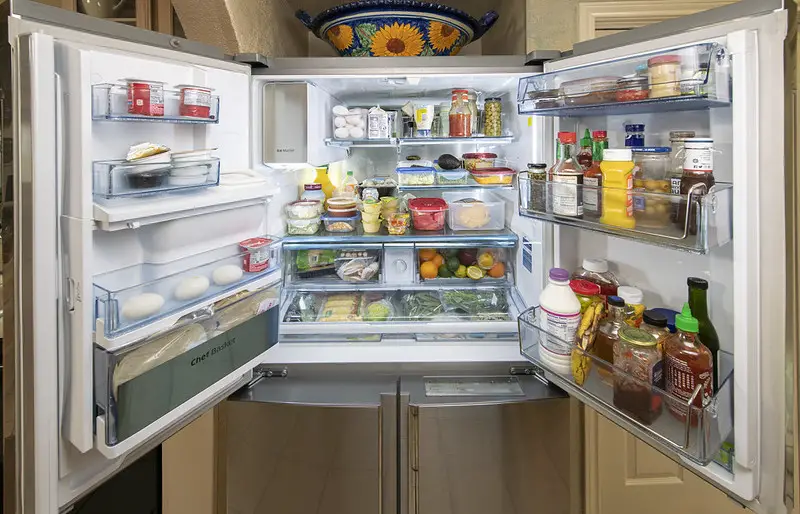If you’re concerned about what makes a refrigerator compressor go bad, rest assured that you’ve come to the right place. This article will take you through the various factors and warning signs, in a step-by-step manner, to help you understand and possibly prevent this common appliance issue.

Table of Contents
What Makes a Refrigerator Compressor Go Bad?
A refrigerator compressor doesn’t just go bad overnight. Several contributing factors can weaken its efficiency over time, and we will examine each one closely.
Age of the Refrigerator
The lifespan of a refrigerator compressor is typically between 10 to 15 years. However, this range can vary based on the brand, usage, and maintenance of the appliance. As your refrigerator gets older, the compressor’s parts can wear out, leading to less efficient operation and eventual failure.
Old age is often accompanied by increased noise and less effective cooling. When your refrigerator is close to or past its average lifespan, it is crucial to monitor the compressor’s performance and consider seeking professional advice for possible replacement or refurbishing.
Electrical Issues
Electrical problems are another common reason for compressor failures. Electrical surges or irregularities in your home’s power supply can cause undue stress on the compressor. This is because any fluctuation in voltage forces the compressor to work harder to maintain the refrigerator’s temperature. Over time, this can cause the electrical components within the compressor to wear out more quickly.
To mitigate this, consider using a surge protector specifically designed for major appliances. Also, consult a professional electrician to check your home’s electrical system if you frequently experience power fluctuations.
Overloading
It may be tempting to stuff your refrigerator full, especially after a big grocery shopping trip, but this can actually be detrimental to your compressor. A tightly packed refrigerator restricts airflow, making it difficult for the appliance to maintain its internal temperature. This forces the compressor to run for longer periods, increasing wear and tear on its components.
The ideal load for a refrigerator is to leave enough space for air to circulate freely, ensuring efficient cooling. Overloading can lead to a shorter lifespan for the compressor, and in some cases, immediate failure.
How to Identify a Bad Compressor
Realizing your refrigerator isn’t cooling properly is often a cause for concern and may indicate a failing compressor. While only a qualified technician should diagnose and repair compressor issues, there are several signs that can hint at a bad compressor. These symptoms are generally consistent and can be observed without using specialized tools.
Noisy operation: If you hear unusual noises like clicking, buzzing, or humming coming from the back of your refrigerator where the compressor is located, it could be a sign that the compressor is struggling to maintain the cooling cycle.
Overheating: Compressors generate heat during operation, but excessive heat can be a warning sign. If the back of your refrigerator feels too hot to touch near the compressor, it may be overheating. This is often a sign of an overworked or failing compressor.
Food spoiling faster: One of the most obvious signs that your compressor may be failing is if you notice your food and beverages are not as cold as they should be and are spoiling faster than usual. A failing compressor struggles to maintain the optimal temperature, causing the food to spoil.
If you notice one or more of these symptoms, it’s strongly recommended that you consult a qualified appliance technician for a proper diagnosis and course of action.
Check out these other articles…
Are Fridge Compressors Dangerous? The Facts You Need to Know
Is It Worth Replacing Compressor on Refrigerator? Answered
Can a Refrigerator Compressor Explode? What Experts Say
Can a Refrigerator Compressor Catch Fire? Detailed Answer
Can a Refrigerator Compressor Be Recharged? Quick Answer
Do Refrigerator Compressors Get Hot? Comprehensive Answer
Can I Replace a Refrigerator Compressor Myself? Quick Answer
Steps for Diagnosis and Repair
If you suspect your compressor is failing, it’s crucial to consult a professional for an accurate diagnosis and appropriate repairs. Though you may find DIY guides, the compressor is complex and contains electrical components that could be dangerous if handled improperly. Furthermore, attempting repairs on your own may void your appliance’s warranty.
A certified technician will generally perform the following steps:
Diagnostic tests to confirm the issue
Quoting a repair or replacement cost
Performing the necessary repairs or replacement